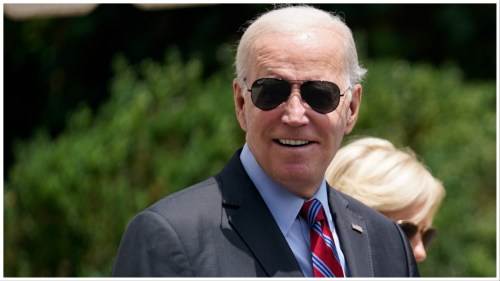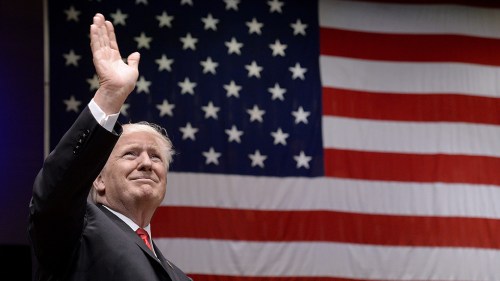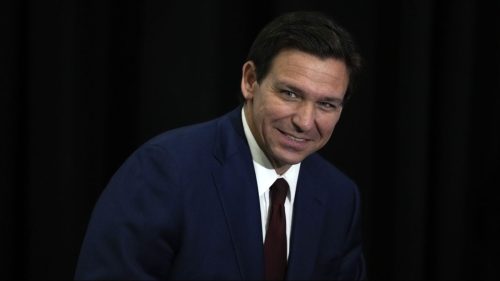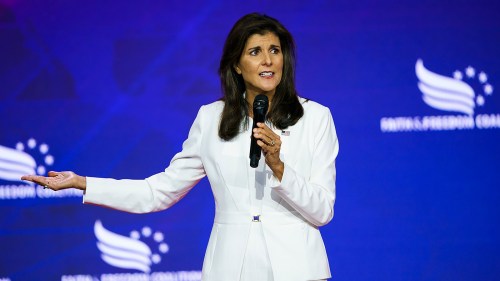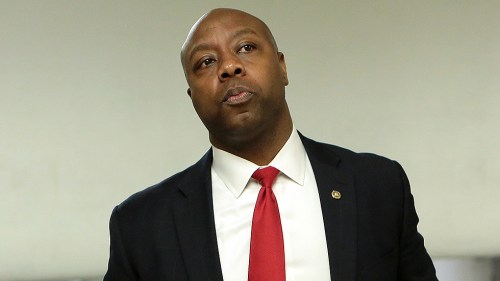Will Trump win the nomination? Watch the process, not the polls
The polls were sending a very clear message at this point in 2007: Hillary Clinton was certain to become the Democratic nominee.
On the Obama campaign, we had a different idea. We geared up for a summer of campaign organizing in Iowa and built our campaign strategy for a long-haul victory for the nomination. This eventually included not only big moments in front of the cameras but also far more important moments behind the scenes involving number-crunching, delegate math and the fine points of the lengthy process that led us to the Democratic nomination.
The media generally missed this nuance in the run up to 2008. And as we head into what has become a two-year 2024 presidential election cycle, the coverage is largely the same this time on the Republican side. There exists widespread anticipation, based on polls alone, that Donald Trump will be anointed early next year as the Republican nominee.
But that’s just not how it works.
Although we are still very far from the primary contests, there is an under-covered story that deserves more attention already — the state parties’ debates on delegate distribution, which will ultimately dictate how easy it will be to unseat the establishment. It’s 2024’s invisible primary and, more so than what you see in the polls, it’s a big tell in terms of how former President Trump’s march to a rematch is going.
I recently spoke with Republican leaders plugged into the 2024 primary. A common theme in their conversations was that they are not certain Trump will win their party’s nomination, but some are concerned he will put his thumb on various scales to affect the process.
The Republican National Committee sets general rules for primary contents, but state parties ultimately determine what kind of process will determine the victor and the rules for how many delegates he or she will receive. They determine whether candidates with less voter support receive delegates, and how many, or whether the winner takes all.
Trump has proven willing to manipulate processes. After the 2020 election, he personally called Georgia’s top election official, Brad Raffensperger, to tell him to find him the votes he needed for victory in the general election. Although investigations continue into that potential interference, Trump’s willingness to muck things up is on the record. And the general election is far more regulated than the primary process, controlled by the parties.
State party leaders are working now to set the process that will determine who will lead their party into the future. And Trump has been in the mix of candidates since November, quite conscious of this process.
There is a diverse field of Republican leaders shaping up to challenge the former president for the Republican nomination. There is no incumbent, even though there is a former president among the contenders. Republicans could opt for a new generation of leadership.
But whether or not they get that new generation of leadership is very much in flux. State parties could create rules that allow a larger voter base of conservative-leaning Americans to engage in the process, which could be more equitable to voters — or not.
During the 2020 primary process, Trump used his advantage as the incumbent, working with the RNC, to adjust the rules to move to higher thresholds for delegates in states where delegates were proportionally awarded. That meant it would be harder for any would-be candidate to win delegates without winning states. In some states they canceled contests altogether.
The process will likely not be like that again, although we won’t know for sure until Oct. 1, as the debate is still in motion. But if you look at the trends on the few stories that are emerging, the process isn’t promising to be more level.
One month ago, Bridge Michigan reported that the Michigan GOP is considering awarding its delegates through county-level caucuses composed of elected precinct delegates, or even through a state convention, instead of directly through a primary. Michigan is moving its primary contest forward on the calendar because of Democrats’ maneuvering of their own nomination process. But it is also an important state in the general election cycle.
The state GOP will make decisions determining how many in this key swing state can engage in selecting a Republican nominee, and for that matter whether independents can partake as well.
What is clear is that Trump and his supporters are poised to take advantage of this system on their way to a potential rematch with President Joe Biden.
Sunlight and a skeptical press are both key to ensuring that the process is fair. But as long as we’re focused on polls and not on the process, the voters are being ill-served and candidates who know the system will be able to manipulate it and shape their own paths to the nomination.
The vast majority of Americans don’t want a rematch between Biden and Trump in this next election. President Biden, at age 80, has opted to exercise his incumbent advantage, and it’s unlikely any other Democrat will stand to unseat him.
But Republicans do have a choice if they exercise their power for their people’s votes at the state level, assuming the media are paying attention.
Johanna Maska, CEO of Global Situation Room, is host of the podcast Press Advance. She is a frequent contributor to The Hill on NewsNation, which airs daily at 5 p.m. Eastern. She was White House Director of Press Advance for President Barack Obama.
Copyright 2023 Nexstar Media Inc. All rights reserved. This material may not be published, broadcast, rewritten, or redistributed. Regular the hill posts
